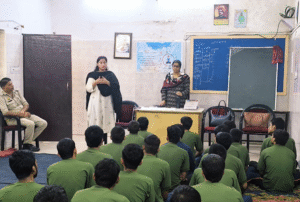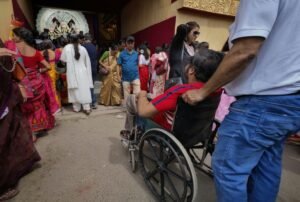
Back to Our Work
Six Years On, East Kidwai Nagar Families Still Wait for Rehabilitation
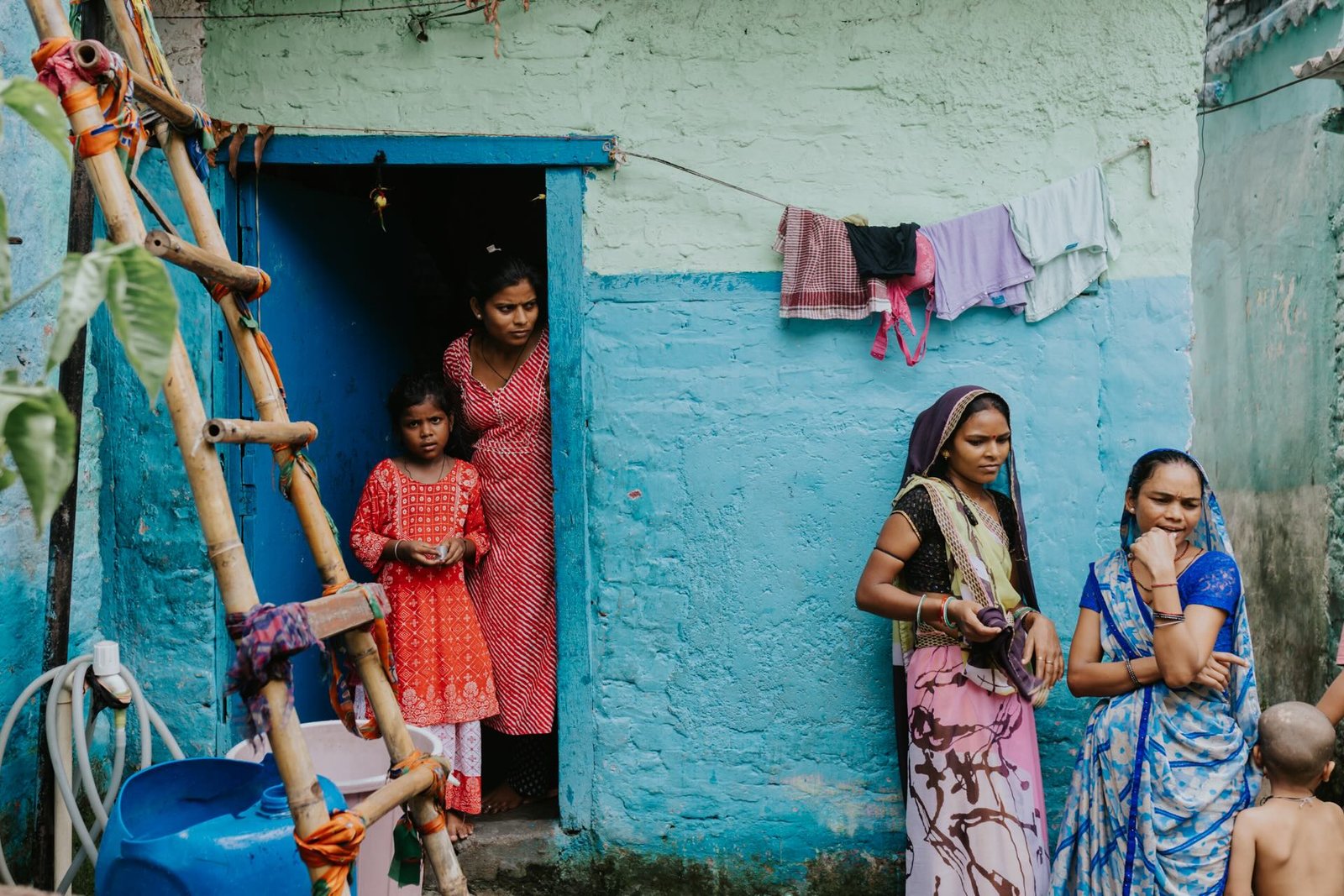
When you ask a ten-year-old boy about his dream home, you don’t expect him to say, without hesitation, that he dreams of a home with “a bed”. But that’s Ganesh’s dream, a bed on which he can sleep without worrying if the rain will carry it away.
Ganesh lives in one of the 400+ jhuggis in East Kidwai Nagar, in Delhi. Here, the houses are crammed together along a narrow stretch, stacked so closely that it’s hard to tell where one ends and the other begins. Tangled webs of electrical cables hang dangerously close to the roofs, swaying just above the homes. A sewage drain runs along one side, its stench sharp. A makeshift wooden bridge placed over the drain links to the outside world, but every few days it gets washed away by heavy rains, forcing the residents to rebuild it again and again. On the other side, high-rises cast long shadows over the basti.
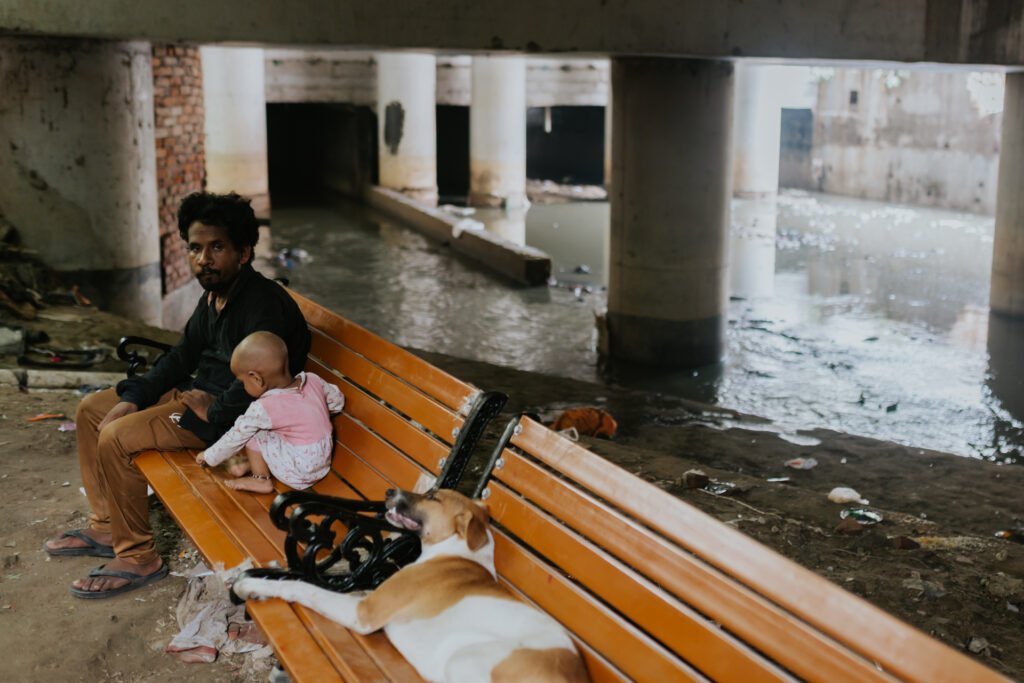
No season is easy here, but the monsoon is unforgiving. Just thirty minutes of steady rain is enough for the drain to swell and invade the homes. As the first droplets fall, families seek shelter on their tin-sheeted roofs. They carry what they can: clothes, food, important documents. Some sit for hours, covering themselves with tarpaulin sheets. Each monsoon washes away most of what they have built over the entire year.
“We have lost so much furniture to the rain, the wood swells, everything gets ruined. That is why we can’t have a bed,” Ganesh says.
For Isra and her family, survival becomes a struggle. Her sons, both daily wage workers, lose days of income when they’re trapped in by the water submerging their basti, she says.
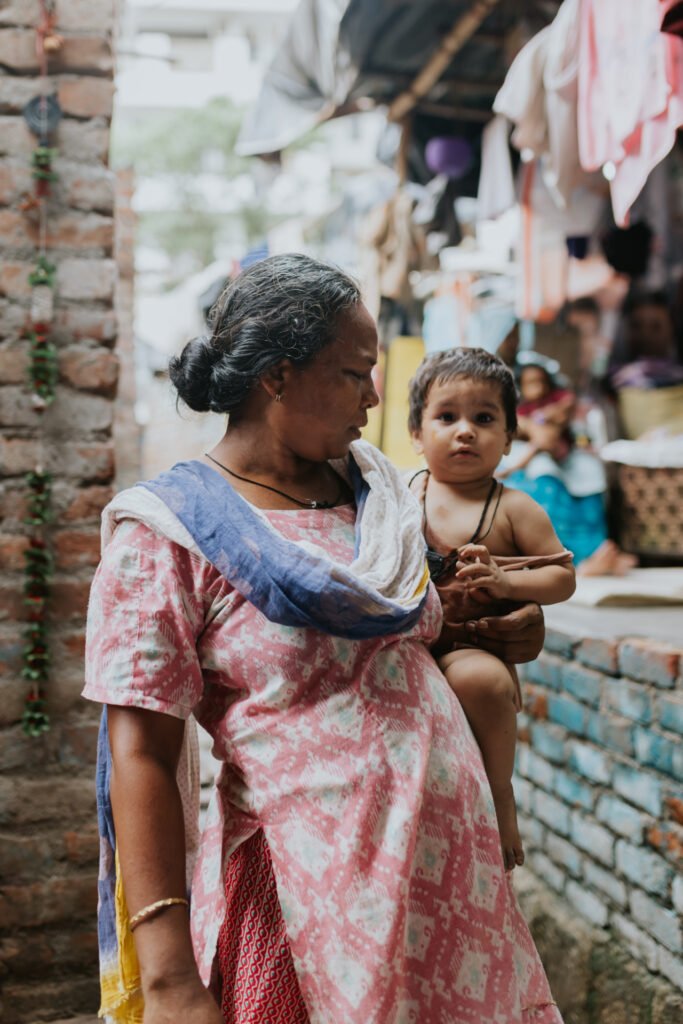
Her daughter-in-law, who recently gave birth, fell seriously ill, diagnosed with typhoid, jaundice, and liver complications, all caused by the unhygienic conditions around them.
“Send us anywhere, just away from here. We can’t do it anymore,” Isra says.
Eight years ago, in 2017, the residents of East Kidwai Nagar went to court, facing eviction. At the centre of this battle was Mathura Prasad, a construction worker who came to Delhi in the 1980s like countless others, in hope of a better life.
Mathura Prasad found support from NGOs. The case was brought to iProbono India through community workers, leading to a favourable court order in 2019. Each resident was asked to pay over ₹1 lakh for relocation, a sum they managed through loans, selling valuables, and exhausting their savings. They did so with hope, and with faith in Mathura’s steadfast belief that this would finally bring them safe, dignified housing.
“People laugh at me now,” Prasad says. “They ask me where is the housing you promised us?”
Mathura Prasad still holds on to the belief that the promised housing will be theirs, even as hope fades for those around him. Only a few stand with him now. Of late, his days are consumed by court dates, legal documents, and an exhausting chase from office to office.
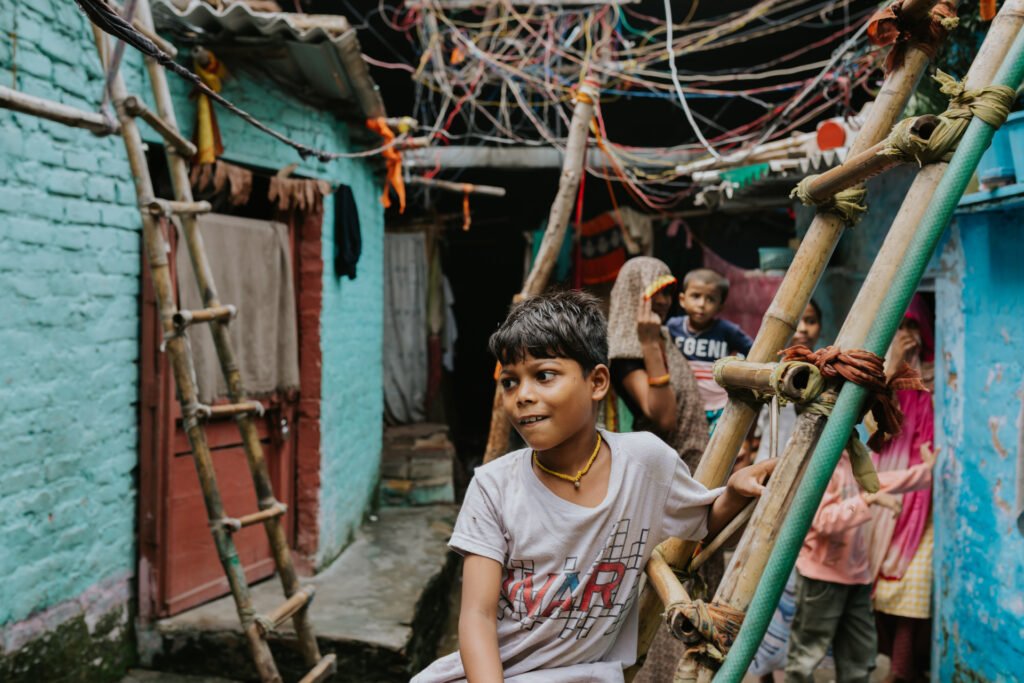
“It hasn’t been easy,” says his daughter Priti, 25-years old, who has seen firsthand how much this long fight has taken out of her father.
“Every year we think, this will be the year. And just like that, years pass,” she says.
When Priti was younger, she says, her hopes and dreams were limited. She hadn’t seen much beyond the lanes of the East Kidwai Nagar basti.
“Now that I have seen the outside world, I realise how far behind we are.”
Pointing to the high-rise apartments above, she says, “when our neighbours who work there come back and describe how beautiful those homes look during Diwali… it stings. We long for a home of our own.”
But instead, they continue to live in unsafe conditions, with promises of rehabilitation from authorities that have long lost their meaning.
“Maybe if we had no hope, we would have settled. But knowing there’s a possibility, and not getting it, that hurts more,” she says.
The resettlement housing complex meant for East Kidwai Nagar residents was repurposed as a COVID-19 quarantine centre in 2020, delaying the rehabilitation ordered by the Delhi High Court in 2019. It was later earmarked for a central government scheme to house migrant workers, but confusion over whether the flats could be used for central purposes led to the scheme never being implemented, and the flats fell into disrepair. The Court was eventually informed that residents would be moved to an entirely different complex, one that remains incomplete, lacking basic amenities. Despite a directive for immediate rehabilitation, the residents continue to live in limbo.
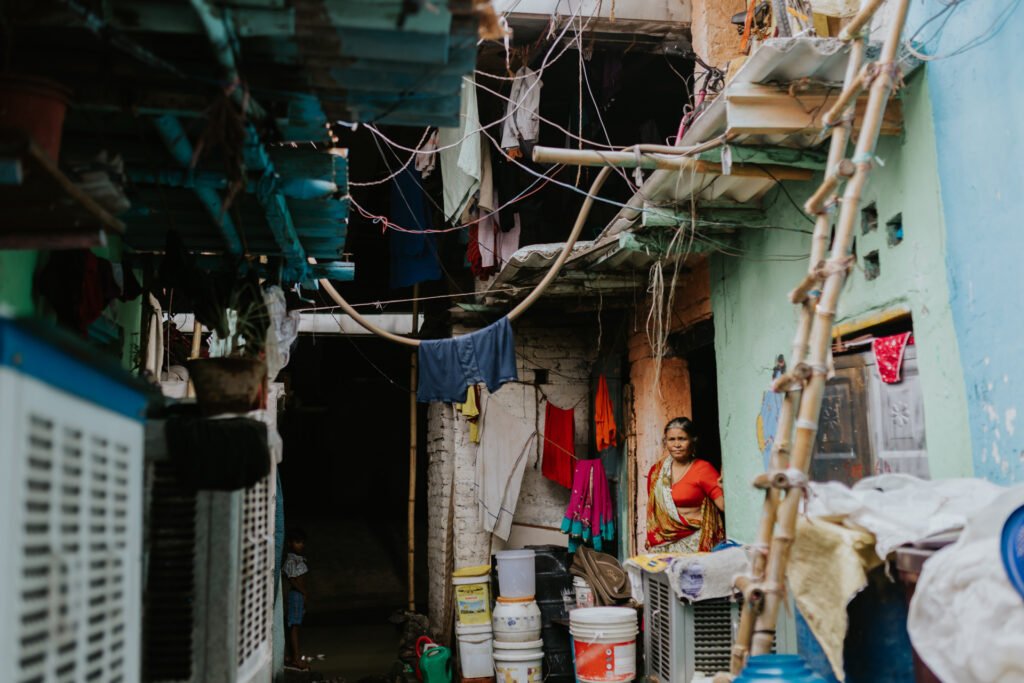
“Every Diwali, they ask me, full of hope, if they’ll finally celebrate in their own flats, away from their deplorable living conditions,” says Karuvaki Mohanty, Program Manager, iProbono India. “Our team is fighting tirelessly in court and through advocacy, and we won’t give up until they get the rehabilitation they deserve. But every year that they are denied their rights is a travesty of justice.”
Until they finally get what was promised, Ganesh lays his head on the bare floor, Priti strings up festival lights in their one-room home, and Mathura Prasad walks the same worn path, from door to door, chasing a promise.







